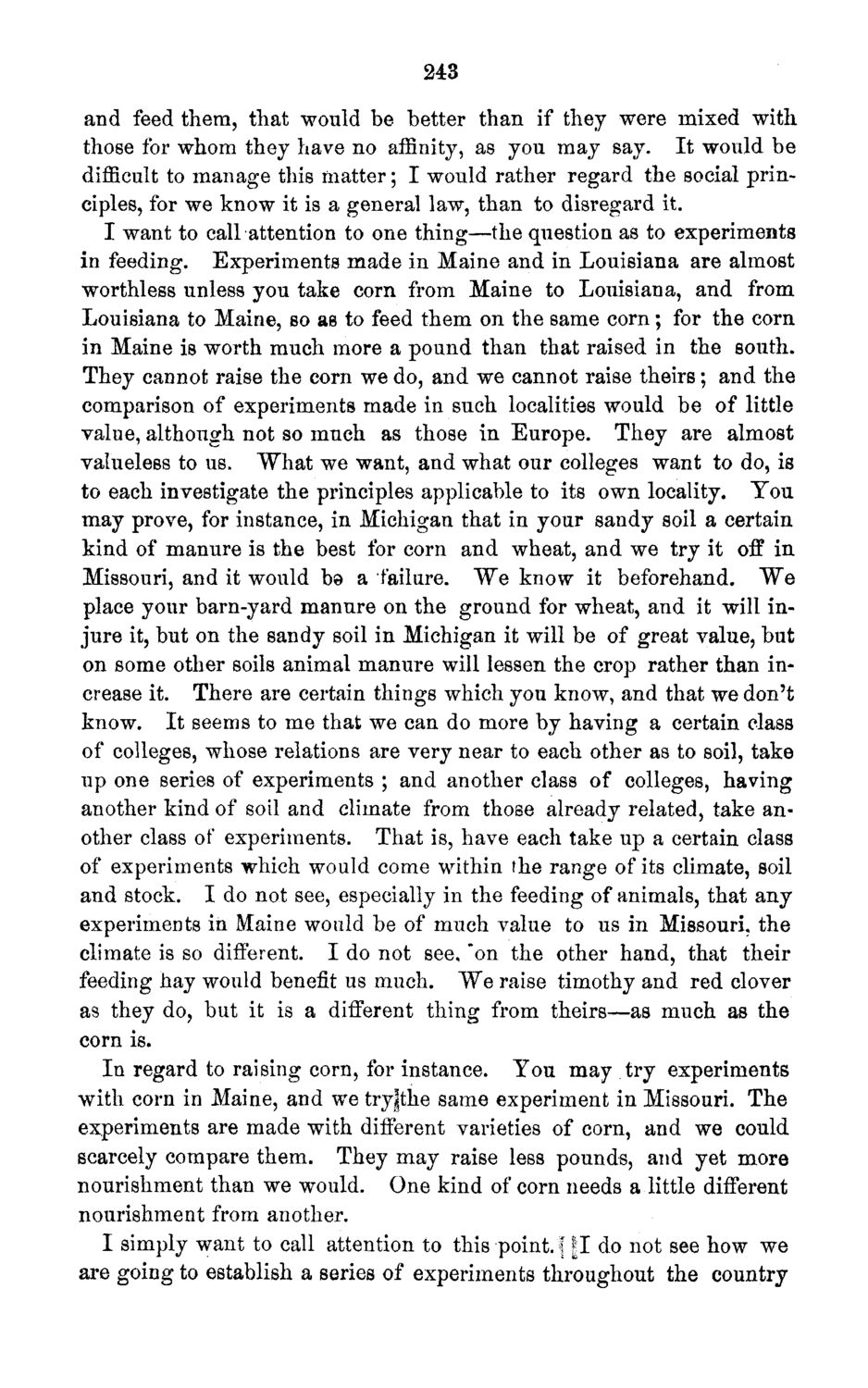| |
| |
Caption: Board of Trustees Minutes - 1871
This is a reduced-resolution page image for fast online browsing.

EXTRACTED TEXT FROM PAGE:
243 and feed them, that would be better than if they were mixed with those for whom they have no affinity, as you may say. It would be difficult to manage this matter; I would rather regard the social principles, for we know it is a general law, than to disregard it. I want to call attention to one thing—the question as to experiments in feeding. Experiments made in Maine and in Louisiana are almost worthless unless you take corn from Maine to Louisiana, and from Louisiana to Maine, so as to feed them on the same corn; for the corn in Maine is worth much more a pound than that raised in the south. They cannot raise the corn we do, and we cannot raise theirs; and the comparison of experiments made in such localities would be of little value, although not so much as those in Europe. They are almost valueless to us. What we want, and what our colleges want to do, is to each investigate the principles applicable to its own locality. You may prove, for instance, in Michigan that in your sandy soil a certain kind of manure is the best for corn and wheat, and we try it off in Missouri, and it would b© a failure. We know it beforehand. We place your barn-yard manure on the ground for wheat, and it will injure it, but on the sandy soil in Michigan it will be of great value, but on some other soils animal manure will lessen the crop rather than increase it. There are certain things which you know, and that we don't know. It seems to me that we can do more by having a certain class of colleges, whose relations are very near to each other as to soil, take up one series of experiments ; and another class of colleges, having another kind of soil and climate from those already related, take another class of experiments. That is, have each take up a certain class of experiments which would come within the range of its climate, soil and stock. I do not see, especially in the feeding of animals, that any experiments in Maine would be of much value to us in Missouri, the climate is so different. I do not see, "on the other hand, that their feeding hay would benefit us much. We raise timothy and red clover as they do, but it is a different thing from theirs—as much as the corn is. In regard to raising corn, for instance. You may try experiments with corn in Maine, and we try|the same experiment in Missouri. The experiments are made with different varieties of corn, and we could scarcely compare them. They may raise less pounds, and yet more nourishment than we would. One kind of corn needs a little different nourishment from another. I simply want to call attention to this point.! | I do not see how we are going to establish a series of experiments throughout the country
| |